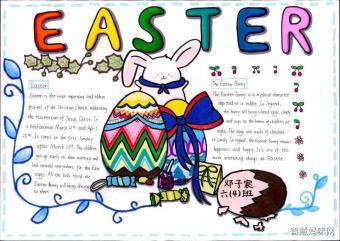酶促反应:酶的特异性及其在生物催化中的作用
2024-05-23
Pagan, Hebrew, and Christian Origins of Easter
The origins of Easter, a holiday deeply rooted in various cultures and beliefs, are as diverse as they are fascinating. According to Venerable Bede, an English historian of the early 8th century, the name"Easter"survives from the old Teutonic mythology. Derived from the Norse Ostara or Eostre, the Anglo-Saxon goddess of spring, the month of April was dedicated to her, known as Eostur-monath. This ties in with the festival of spring, or vernal equinox, which occurs on March 21, marking the resurrection of nature after winter.
The symbol of the rabbit, or Easter Bunny, is a testament to the fecundity of rabbits, particularly during this time of year. Meanwhile, the use of Easter eggs dates back to the springtime laying of eggs, which were colored like rays of the returning sun and the Northern Lights, or aurora borealis. The tradition of decorating and exchanging these eggs at Easter has been long-standing.
On the Hebrew side, the month of April was the same as the mensis paschalis, a time when the old festival was observed with newfound solemnity. The root"pasch,"from which many other names for Easter are derived, comes from the Hebrew Pesach (Passover), derived from the verb form"he passed over."This refers to the night in Egypt when the angel of death spared the first-born of the Israelites, as recounted in Exodus XII. Therefore, the Passover or Jewish Pesach is celebrated during Nisan, the first month of the Hebrew year.
In Christianity, it was at the feast of the Passover in Jerusalem that Jesus, a Jew, was crucified and rose from the dead. This event became the foundation of the Christian faith and is commemorated every Easter. The resurrection of Jesus marked a new beginning, symbolizing the promise of eternal life and the overcoming of death.

Overall, the origins of Easter are a testament to the rich tapestry of history and culture. From Pagan goddesses to Hebrew festivals and Christian beliefs, the holiday represents a convergence of traditions and beliefs, making it a celebration that is deeply meaningful and universally observed.
免责声明:本站所有作品图文均由用户自行上传分享,仅供网友学习交流。若您的权利被侵害,请联系我们
相关文章
2024-05-23
2024-05-23
2024-05-23
2024-05-23
2024-05-23
2024-05-23
2024-05-23
2024-05-23
2024-05-23
2024-05-23
2024-05-23
2024-05-23
2024-05-23
2024-05-23
站长推荐
超详细!麦当劳大薯条DIY制作,再也不用去快餐店排队
草莓慕斯蛋糕:美味与颜值并存的甜点
轰炸鸡排:美味炸鸡胸排的制作秘诀
美味健康的洋葱炒猪肝做法
轻松制作美味鸡尾包:详细步骤与技巧
家常洋白菜炒粉:美味不腻的快手菜
新奥尔良烤鸡翅:入味多汁的秘诀在这里!
家常美味:辣炒鱿鱼的做法详解
香酥麻花的制作方法与配方:咸甜皆宜的美味小食
家常美味:茄子炖土豆的制作方法
制作香甜可口的油香:简单易学的烹饪指南
十香菜搭配蔬菜鸡肉,美味健康的家常炒菜
枸杞泡茶:简单易做的滋补饮品
海参汤的家常做法:简单又美味
制作甜酒酿:糯米的艺术与酒药的魔法